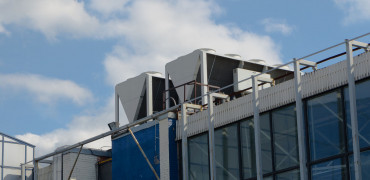The latest FM industry survey from RICS (Q2 2021) shows that sustainability and energy efficiency are high on the corporate agenda.
More than 80% of survey respondents said their clients considered sustainability to be the most important or one of the most important issues for their organisation.
And 38% said that their clients are regularly considering the implementation of energy efficiency measures.
The renewed focus on energy efficiency in buildings is coming from many directions.
Building owners will get the best and most energy-efficient performance
Ambitious cities
Several cities and local authorities are focusing on the energy use of buildings – commercial and public – in their regions.
A number have set ambitious net-zero carbon emissions goals for the next decade, including Manchester, Bristol, Nottingham, Oxford and London.
As a result, there are growing requirements across the country not only for the design of low-carbon buildings but also for long-term efficient operation.
For example, the London Plan 2021 requires major projects to provide five years of building energy use data. This requirement is in addition to requirements around low-carbon design and construction.
Legislation and regulations are also tightening targets for energy use in buildings. The UK government has proposed a new minimum Energy Performance Certificate (EPC) of B (increased from F) for commercial rented properties.
Updates to Part L of the Building Regulations (conservation of energy) are due later in 2021 and will set tighter targets on efficiency.
Maintaining HVAC systems
Good maintenance practice is vital to hit these energy efficiency targets for buildings and to maintain efficient performance over the long term.
It’s particularly true for HVAC systems, which use around 40% of energy in commercial and public buildings.
At Mitsubishi Electric, we work with clients to develop planned preventative maintenance (PPM) programmes to ensure that HVAC systems achieve and maintain optimum performance.
The principle of PPM is the provision of regular service and maintenance of HVAC equipment.
At its simplest, PPM ensures that equipment doesn’t fail unexpectedly, which leads to problems in the building and repair costs. Tackling faults as they arise is a short-term approach: It costs more to fix an issue than to prevent it from happening.
But PPM has other benefits. It extends the life of HVAC equipment by optimising its operation. As a result, building owners get the best and most energy-efficient performance out of that equipment.
Degraded performance
Manufacturers build modern HVAC equipment to last, but it needs regular servicing and maintenance to do so.
Left to its own devices, equipment such as chillers won’t necessarily develop faults, but its performance will degrade over time. This performance fall-off leads inevitably to a system that doesn’t meet building requirements, costs more to run and as it is less efficient, will produce more CO2, and will reach the end of its life sooner.
Increasing concern for sustainability and energy efficiency in buildings is putting FM and maintenance services front and centre in the drive for improved building performance. At Mitsubishi Electric, we are focused on a cradle-to-grave approach to HVAC equipment.
Our expert service and maintenance teams can work on your system from design to commissioning to a complete PPM programme.
Our customers can decide what they need with our bespoke service approach, and rest assured that we can provide it.
Geoff Turton is Head of Service, Maintenance & After Sales Technical



